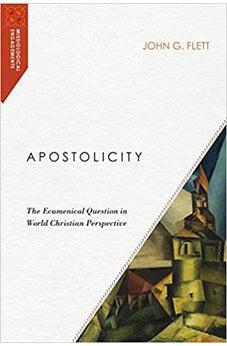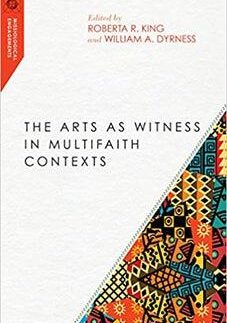Apostolicity: The Ecumenical Question in World Christian Perspective (Missiological Engagements)
Review “John Flett’s Apostolicity: The Ecumenical Question in World Christian Perspective gives voice to the challenge of that course for me: how Western Christianity still struggles with the legitimacy of non-Western churches. . . . By allowing apostolicity to be reconceived as a process to be undergone rather than a historical-cultural substance to be replicated, Flett convincingly argues for a postcolonial way forward for ecclesiology.” — Myles Werntz, Books Culture, July 7, 2016″Ecumenical discussions assume that the apostolic faith is transmitted through ecclesial practices and institutional structure. John Flett shows how this assumption leads, quite logically, to colonization as a mode of Christian mission. Alternatively, he argues that the experience of world Christianity should be taken as a point of departure. Diverse expressions of Christianity already share the apostolic faith; they do not need to be linked to some Western tradition to justify their apostolic continuity. This book’s implications for ecclesiology and mission are huge.” — Ben Myers, The Christian Century, May 10, 2017″Ecumenical discussions assume that the apostolic faith is transmitted through ecclesial practices and institutional structures. John Flett shows how this assumption leads, quite logically, to colonization as a mode of Christian mission. Alternatively, he argues that the experience of world Christianity should be taken as a point of departure. Diverse expressions of Christianity already share the apostolic faith; they do not need to be linked to some Western tradition to justify their apostolic continuity. This book’s implications for ecclesiology and mission are huge.” — The Christian Century, May 10, 2017 What constitutes the unity of the church over time and across cultures? Can our account of the church’s apostolic faith embrace the cultural diversity of world Christianity? The ecumenical movement that began in the twentieth century posed the problem of the church’s apostolicity in profound new ways. In the attempt to find unity in the midst of the Protestant-Catholic schism, participants in this movement defined the church as a distinct culture?complete with its own structures, rituals, architecture and music. Apostolicity became a matter of cultivating the church’s own (Western) culture. At the same time it became disconnected from mission, and more importantly, from the diverse reality of world Christianity. In this pioneering study, John Flett assesses the state of the conversation about the apostolic nature of the church. He contends that the pursuit of ecumenical unity has come at the expense of dealing responsibly with crosscultural difference. By looking out to the church beyond the West and back to the New Testament, Flett presents a bold account of an apostolicity that embraces plurality. Review “In many respects, this work by John Flett is an outstanding contribution to international ecumenism and to the discussion on current issues in mission theology. The topic of apostolicity touches on the question of continuity, and it also touches on the question of crossing boundaries in the service of mission. As Swedish bishop and mission studies scholar Bengt Sundkler was wont to say, ‘Transplantation means mutation.’ John Flett outlines the different positions of various denominational traditions (Protestant, Roman Catholic, Orthodox, etc.) and he relates perspectives from the southern hemisphere to those from the northern hemisphere. In so doing, the book builds bridges and contributes toward mutual understanding. Flett’s approach is as integrative as it is innovative and will certainly stimulate the ongoing discussion. This is a remarkable effort that deserves the highest praise.” — Henning Wrogemann, Protestant University Wuppertal/Bethel, author of Intercultural Theology About the Author John G. Flett (PhD, Princeton Theological Seminary) lectures in intercultural th










